In the vibrant world of exotic birds, a remarkable parallel exists with human social needs. These intelligent creatures, adorned with breathtaking plumage and capable of remarkable vocalizations, aren’t simply decorative pets or fascinating wildlife – they’re deeply social beings. From parrots to cockatoos, many exotic bird species have evolved complex social structures in the wild that directly influence their psychological well-being in captivity. Understanding why socialization is crucial for these feathered companions reveals much about their cognitive abilities, emotional needs, and evolutionary history. When deprived of adequate social interaction, exotic birds don’t merely become lonely – they can develop destructive behaviors, health problems, and even shortened lifespans. This exploration into bird socialization sheds light on how humans can better serve as flock substitutes and ensure these intelligent creatures live fulfilled lives in our care.
The Flock Mentality: Birds as Social Creatures

In their natural habitats, most exotic bird species live in complex social groups where interaction forms the foundation of their daily existence. African Grey parrots, macaws, cockatiels, and numerous other popular pet species travel, forage, communicate, and roost together in flocks that can range from a few dozen to several hundred individuals. These flocks provide crucial functions beyond mere companionship – they offer protection from predators through collective vigilance, knowledge transfer about food sources, and opportunities for mating and reproduction. The social structure of these flocks often includes sophisticated hierarchies and relationship networks that birds navigate throughout their lives. When kept as pets, these deeply ingrained social instincts don’t simply disappear; rather, they become redirected toward human caregivers or other household pets who must fulfill the role of “flock” for these animals to thrive.
Evolutionary Reasons Behind Bird Socialization Needs

Birds’ need for socialization has deep evolutionary roots that developed over millions of years as survival strategies. Many parrot species, for instance, evolved in environments where predation was a constant threat, making group living advantageous for spotting dangers and sounding alarms. These evolutionary adaptations created brains wired for social interaction, with regions specifically dedicated to communication, bond formation, and social learning. Additionally, many exotic bird species have unusually long lifespans for their body size – macaws can live up to 60 years, and African Greys potentially 80 years – creating evolutionary pressure for long-term social stability and complex relationship management. The cooperative breeding observed in some species, where non-breeding individuals help raise young, further reinforces the importance of social structures. These evolutionary factors explain why socialization isn’t optional but fundamental to these birds’ existence, making social deprivation particularly damaging to their well-being.
Cognitive Development Through Social Interaction

Socialization plays a pivotal role in the cognitive development of exotic birds, particularly during their formative early years. Young birds learn essential life skills by observing and interacting with other flock members, including foraging techniques, predator recognition, appropriate social behaviors, and communication patterns. Studies have demonstrated that socially-raised parrots develop larger vocabularies and more diverse vocalizations than those raised in isolation, highlighting how social contexts enhance their cognitive abilities. Even more fascinatingly, birds raised in rich social environments demonstrate better problem-solving skills, adaptability to new situations, and environmental awareness. The stimulation provided through social interaction literally shapes their brain development, with neural pathways forming in response to these experiences. Without adequate socialization, birds miss critical developmental windows for these cognitive skills, creating deficits that can be difficult to overcome later in life.
Signs of Social Deprivation in Captive Birds

Birds suffering from insufficient socialization often display unmistakable behavioral indicators that their social needs aren’t being met. One of the most common signs is excessive screaming or calling, which represents the bird’s desperate attempt to contact absent flock members or express distress at their isolation. Feather plucking and self-mutilation behaviors frequently develop in socially deprived birds as displacement activities for their frustration and psychological suffering. Some birds develop stereotypic behaviors – repetitive, apparently purposeless movements like pacing, head-swinging, or repetitive stepping – which indicate psychological distress similar to conditions observed in other captive animals. Additionally, socially deprived birds may become fearful, aggressive, or withdrawn, losing interest in their surroundings and displaying reduced activity levels. These behavioral issues aren’t mere nuisances for owners; they represent genuine suffering and can lead to serious health complications if the underlying social deficiencies aren’t addressed.
Different Social Needs Across Species

The intensity and type of socialization required varies significantly across different exotic bird species, reflecting their diverse evolutionary histories and natural social structures. Cockatoos, particularly umbrella and Moluccan varieties, typically require the most intensive socialization, having evolved in highly interdependent flocks with constant physical contact and interaction. African Grey parrots, while less overtly affectionate than cockatoos, possess remarkable social intelligence and suffer greatly without mental stimulation and companionship that matches their cognitive abilities. By contrast, some species like Pionus parrots or certain conures may be more independent while still requiring regular interaction, just with less intensity than the more demanding species. Interestingly, even within a species, individual birds demonstrate varying social temperaments based on their personal history, upbringing, and genetic factors. Understanding these nuanced differences is crucial for potential bird owners who must honestly assess their ability to meet a particular species’ social requirements before bringing them into their homes.
Humans as Flock Substitutes
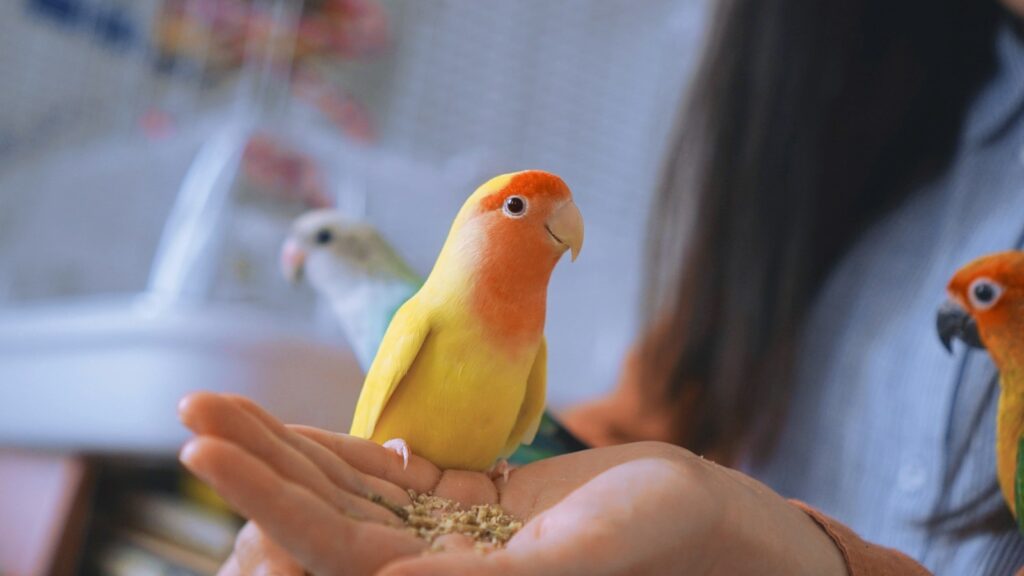
In captive settings, humans must effectively step into the role of surrogate flock members for their avian companions, a responsibility that goes far beyond basic care. This substitution requires consistent daily interaction through activities like talking to the bird, handling it appropriately, and engaging in play that stimulates its natural behaviors. Many successful bird owners integrate their feathered companions into family routines by keeping their cages in active household areas and including birds in appropriate family activities rather than isolating them in rarely-used rooms. The quality of human-bird interaction matters as much as quantity – interactions should be positive, predictable, and responsive to the bird’s signals and needs, rather than forced or overwhelming. For particularly social species like cockatoos, this human flock substitution may require several hours of direct interaction daily, making these species unsuitable for people with limited time or inconsistent schedules.
Bird-to-Bird Companionship: Benefits and Challenges

While humans can provide substantial social interaction, many exotic birds benefit tremendously from relationships with others of their own kind. Same-species companions offer a form of communication and understanding that humans simply cannot replicate, allowing birds to express natural behaviors like mutual preening, flock vocalizations, and species-specific play. However, introducing bird companions requires careful consideration and management to ensure compatibility. Birds must typically be gradually introduced in neutral territory with supervision to prevent territorial aggression, particularly with mature birds that have lived alone for extended periods. Obtaining birds of appropriate sex combinations is also crucial – some species form strong pair bonds that may reduce their bond with human caretakers, while others may become territorial during breeding seasons. The living space must also be evaluated, as multiple birds require larger enclosures and more resources to prevent competition and stress.
Creating an Enriched Social Environment

Beyond direct human or avian companionship, caregivers can create environments that provide social enrichment for exotic birds even when alone. Strategic placement of mirrors can offer some social stimulation for certain birds, though this approach must be used cautiously, as some individuals may become frustrated or develop unhealthy attachments to their reflections. Interactive toys that respond to the bird’s actions with movements or sounds can provide mental stimulation that partially satisfies social needs, particularly toys that require problem-solving or manipulation similar to natural foraging behaviors. Many bird owners successfully use audio and visual stimulation like bird sounds, music, or even bird-specific videos when they cannot be physically present. The physical cage setup also contributes significantly to social well-being – positioning the cage where the bird can observe household activities provides passive social engagement even when direct interaction isn’t possible.
Psychological Consequences of Social Isolation

The psychological impact of social deprivation on exotic birds can be profound and often manifests in conditions strikingly similar to human mental health disorders. Birds kept in isolation frequently develop symptoms resembling depression, including lethargy, appetite changes, decreased vocalization, and loss of interest in previously enjoyable activities. Anxiety-like conditions are also common, with birds showing excessive startle responses, an inability to settle, and heightened vigilance even in safe environments. Perhaps most concerning is the development of abnormal attachment disorders, where birds either become pathologically dependent on single individuals or develop an inability to form healthy attachments at all. These psychological conditions aren’t merely theoretical concerns – they’ve been documented in clinical veterinary settings and significantly impact birds’ quality of life and lifespan. The similarity between these avian psychological responses and human disorders highlights the emotional sophistication of these animals and underscores why their social needs cannot be dismissed as optional.
Socialization Through Training and Interaction

Positive reinforcement training provides a powerful avenue for meaningful socialization that simultaneously stimulates birds mentally while strengthening their bonds with caretakers. Teaching birds behaviors like stepping up, target training, or even more complex tricks creates structured interaction opportunities that birds generally find highly rewarding and engaging. This type of training works by associating human interaction with positive outcomes, helping even previously undersocialized birds develop trust and comfort with human companions. In addition to formal training sessions, routine daily activities like preparing food together, supervised out-of-cage time, and gentle handling during cage cleaning all contribute to a bird’s socialization needs. Many experienced bird owners incorporate “shoulder time” or supervised free-flying opportunities in safe environments as particularly valuable bonding experiences. These interactions should always respect the bird’s body language and comfort level, allowing them to set boundaries while gradually expanding their confidence through positive associations.
Addressing Socialization Needs in Rescue Birds

Birds that have experienced neglect or isolation in previous homes often present special socialization challenges that require patience and specialized approaches. These birds may initially respond with fear, aggression, or withdrawal when socialization attempts are made, reflecting their negative past experiences with humans or other traumatic social interactions. Successful rehabilitation typically begins with respect for the bird’s comfort zone, allowing them to observe human activity from a safe distance without forced interaction. Consistent daily routines help these birds develop trust by making their environment predictable and non-threatening. Food-based socialization often proves effective with rescue birds, as positive associations form when humans consistently provide favored treats without demanding immediate interaction in return. Professional guidance from avian behaviorists can be invaluable in these cases, as they can develop customized socialization plans based on the individual bird’s history and current behavioral patterns.
Balancing Socialization with Independence

While sufficient socialization is crucial for exotic birds, caregivers must also foster appropriate independence to avoid creating overdependent or demanding birds that cannot tolerate any separation. Healthy bird-human relationships include regular interaction balanced with periods where birds engage independently with their environment through toys, foraging activities, or self-directed play. Creating a predictable schedule that includes both interaction time and independent time helps birds develop security in knowing their social needs will be met while also building confidence in self-entertainment. Environmental enrichment plays a key role in this balance, as properly enriched environments allow birds to express natural behaviors and stay mentally engaged during alone time. Some species particularly benefit from training that specifically reinforces calm independent behavior, such as stationing on perches or engaging with specific toys when human attention isn’t available. This balanced approach creates psychologically healthier birds while also making them more sustainable companions for their human caregivers.
The Ethical Implications of Keeping Social Birds
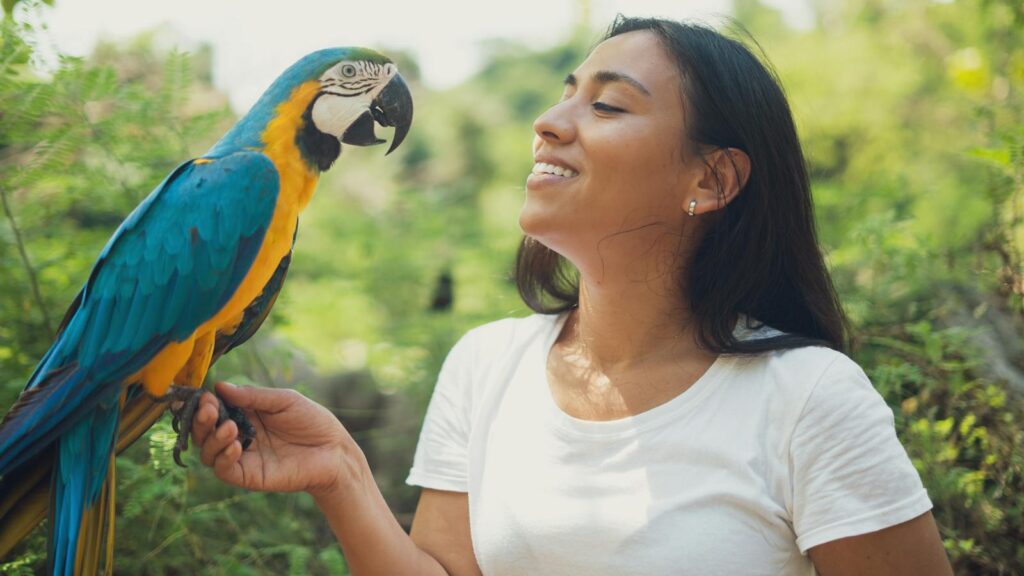
The intensive socialization needs of many exotic bird species raise important ethical questions about their suitability as pets in typical home environments. Potential bird owners must honestly evaluate whether their lifestyle, schedule, and long-term commitment capabilities align with providing the decades of consistent social interaction these animals require to thrive. This ethical consideration becomes particularly acute with highly social species like cockatoos or African Greys, whose intelligence and social sophistication make them especially vulnerable to psychological harm when their needs aren’t met. The exotic bird trade continues to face ethical scrutiny as greater scientific understanding emerges about these animals’ complex cognitive and emotional lives. Some animal welfare organizations and avian specialists now advocate for keeping social birds in pairs or small groups whenever possible, or restricting certain highly demanding species to experienced owners who can demonstrably meet their specialized needs. These ethical discussions reflect growing recognition that responsible bird ownership extends far beyond providing food, shelter, and basic healthcare to include meeting these animals’ sophisticated psychological and social requirements.
The social needs of exotic birds represent far more than optional enrichment – they’re fundamental requirements rooted in evolution, psychology, and these animals’ natural history. As we continue learning about the remarkable cognitive abilities and emotional sophistication of these feathered companions, the importance of proper socialization becomes increasingly evident. For those considering exotic bird ownership, understanding these needs is essential to making ethical decisions about which species (if any) might suit their lifestyle. For current bird owners, recognizing socialization as healthcare rather than mere entertainment can transform their relationship with their avian companions. Through appropriate socialization, whether from human caregivers, bird companions, or enriched environments, we can help these extraordinary creatures live lives that honor their natural capabilities and complex social natures. The happy, well-adjusted exotic bird stands as testament to the power of connection – a fundamental need we share with these remarkable beings who have evolved, like us, to thrive through relationship.

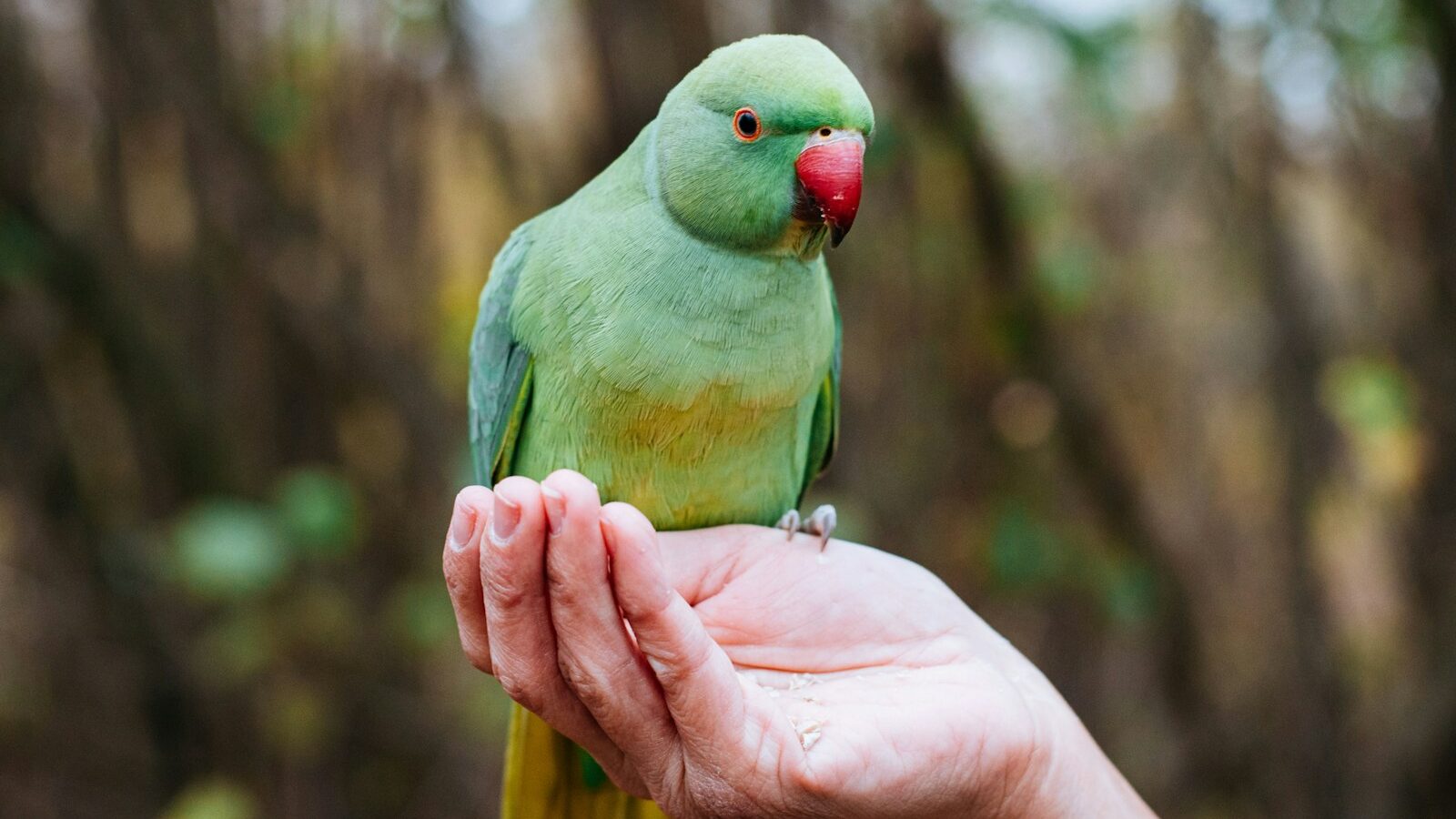
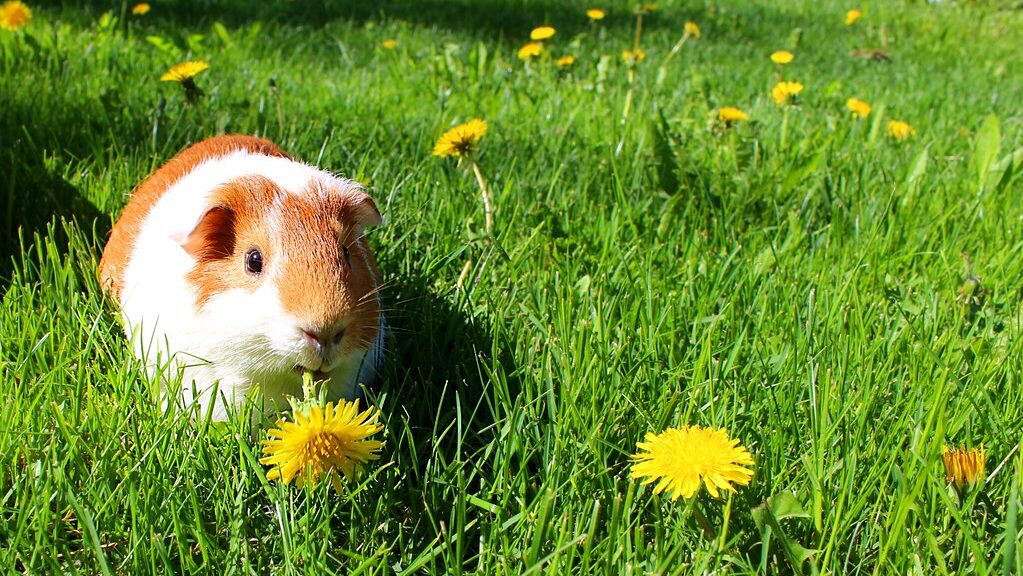
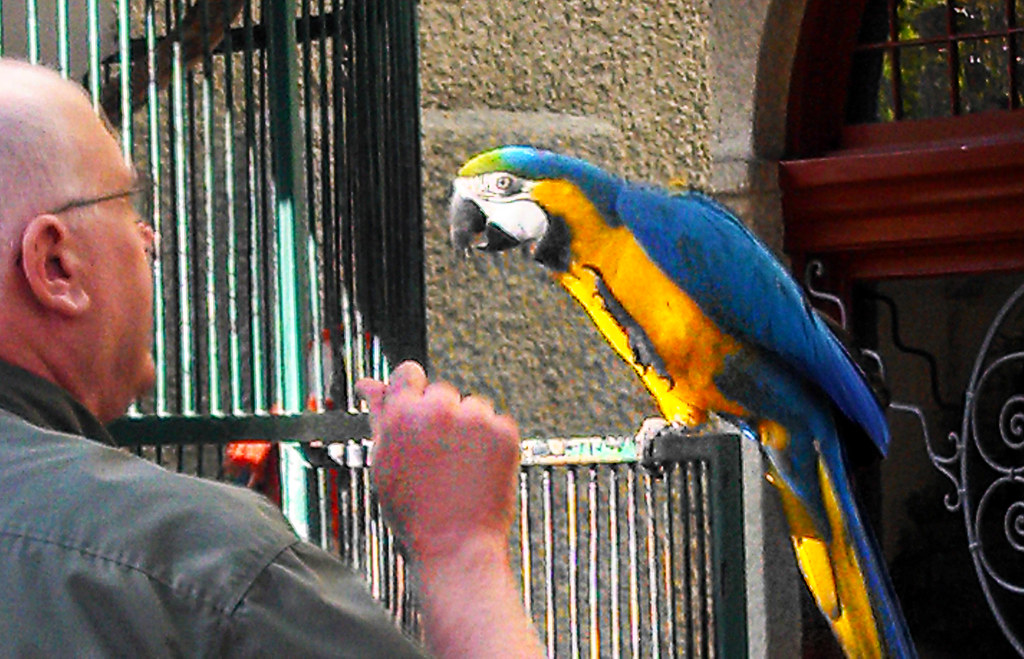
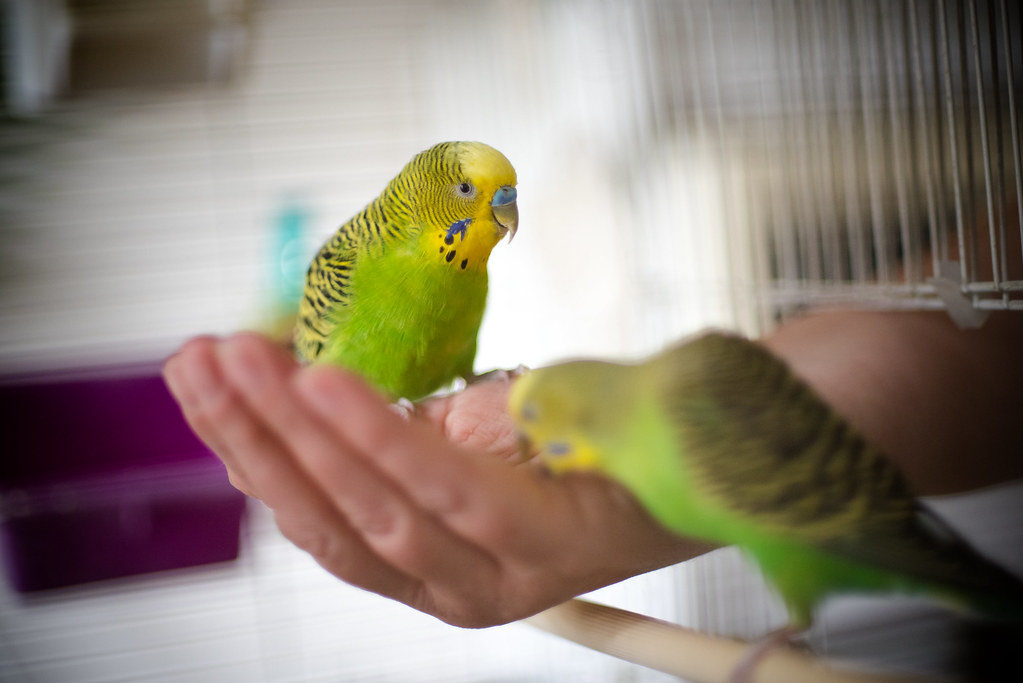
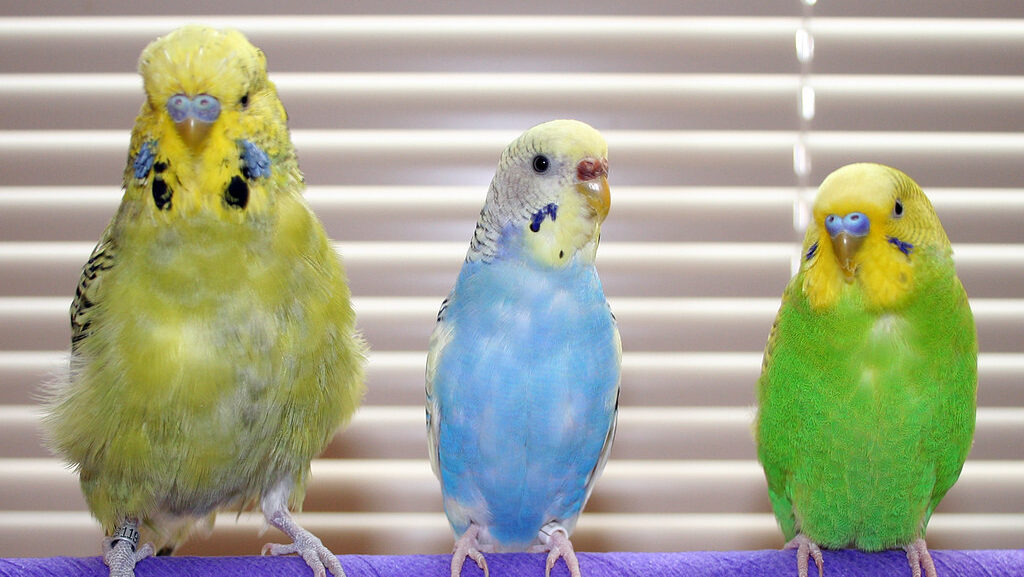
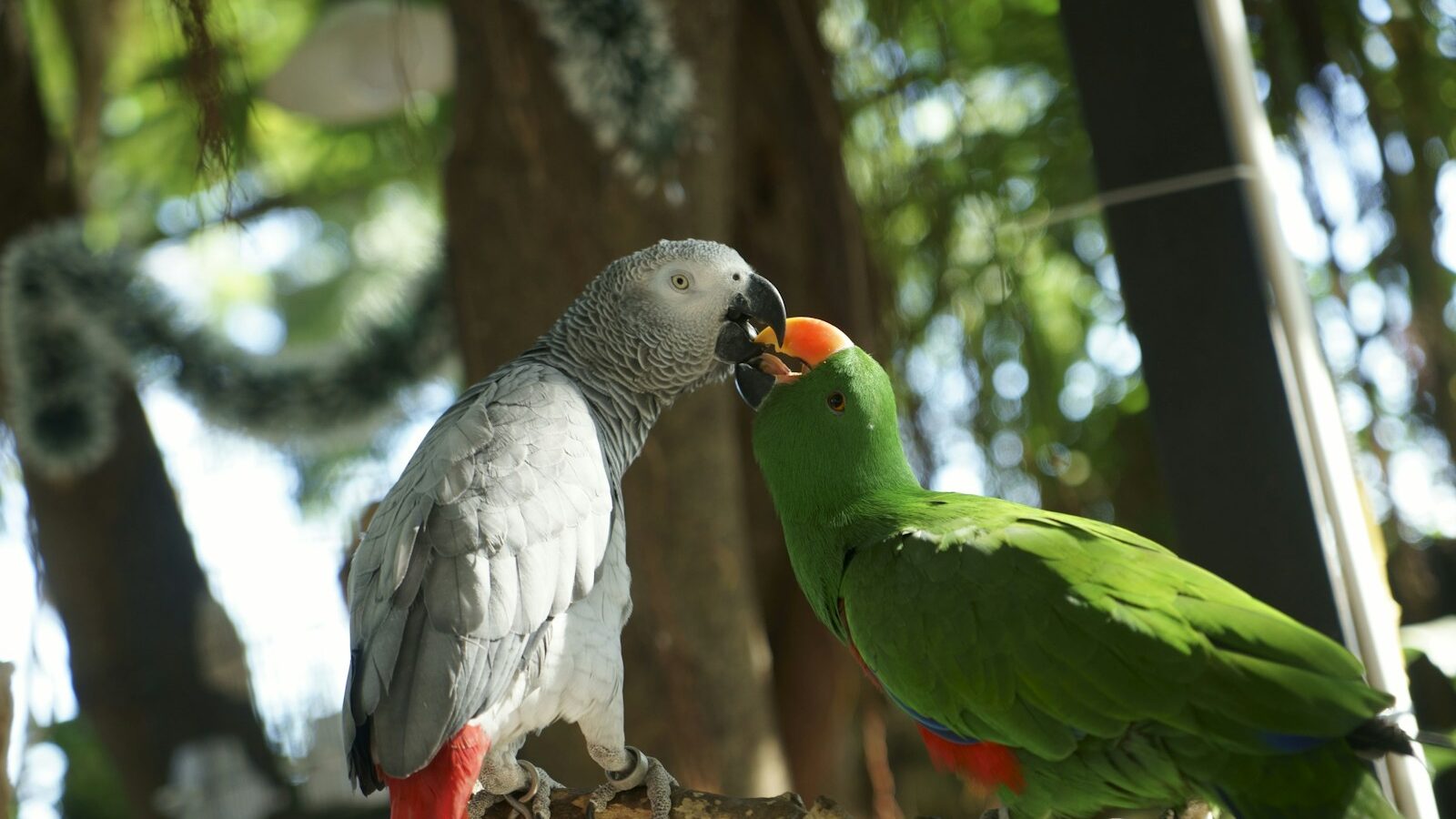
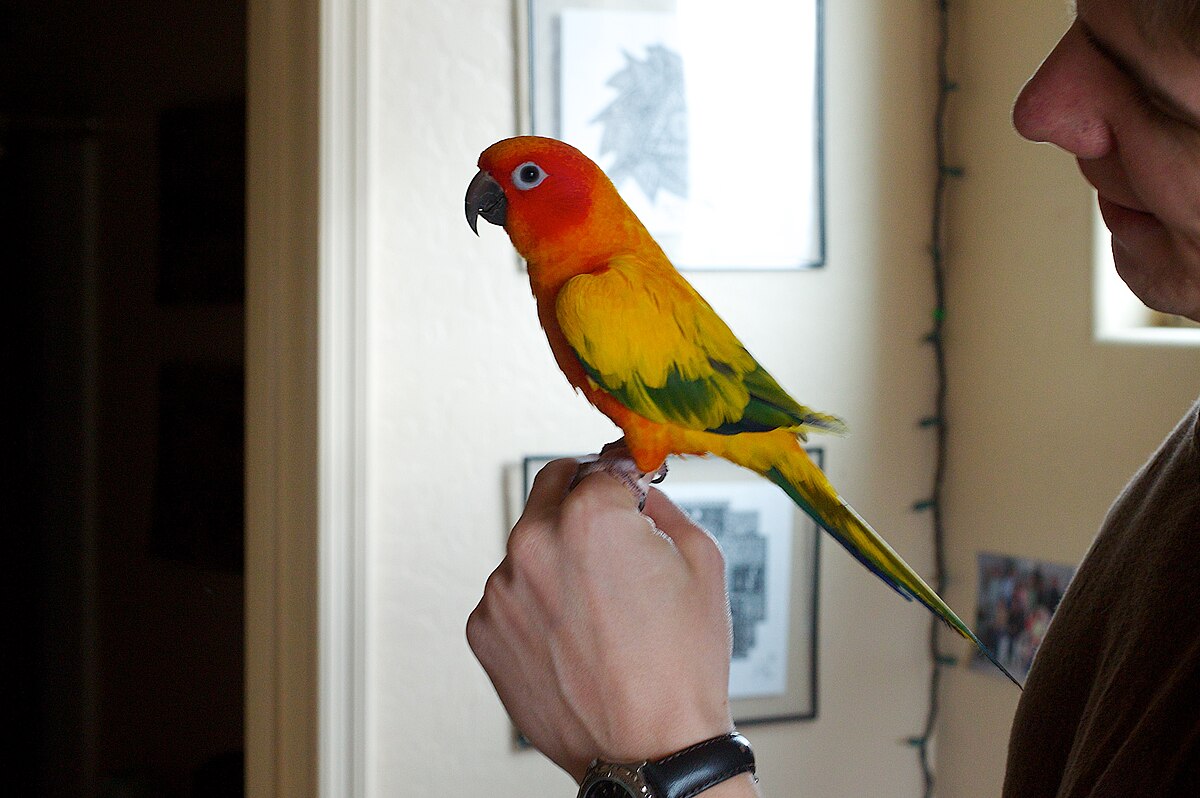
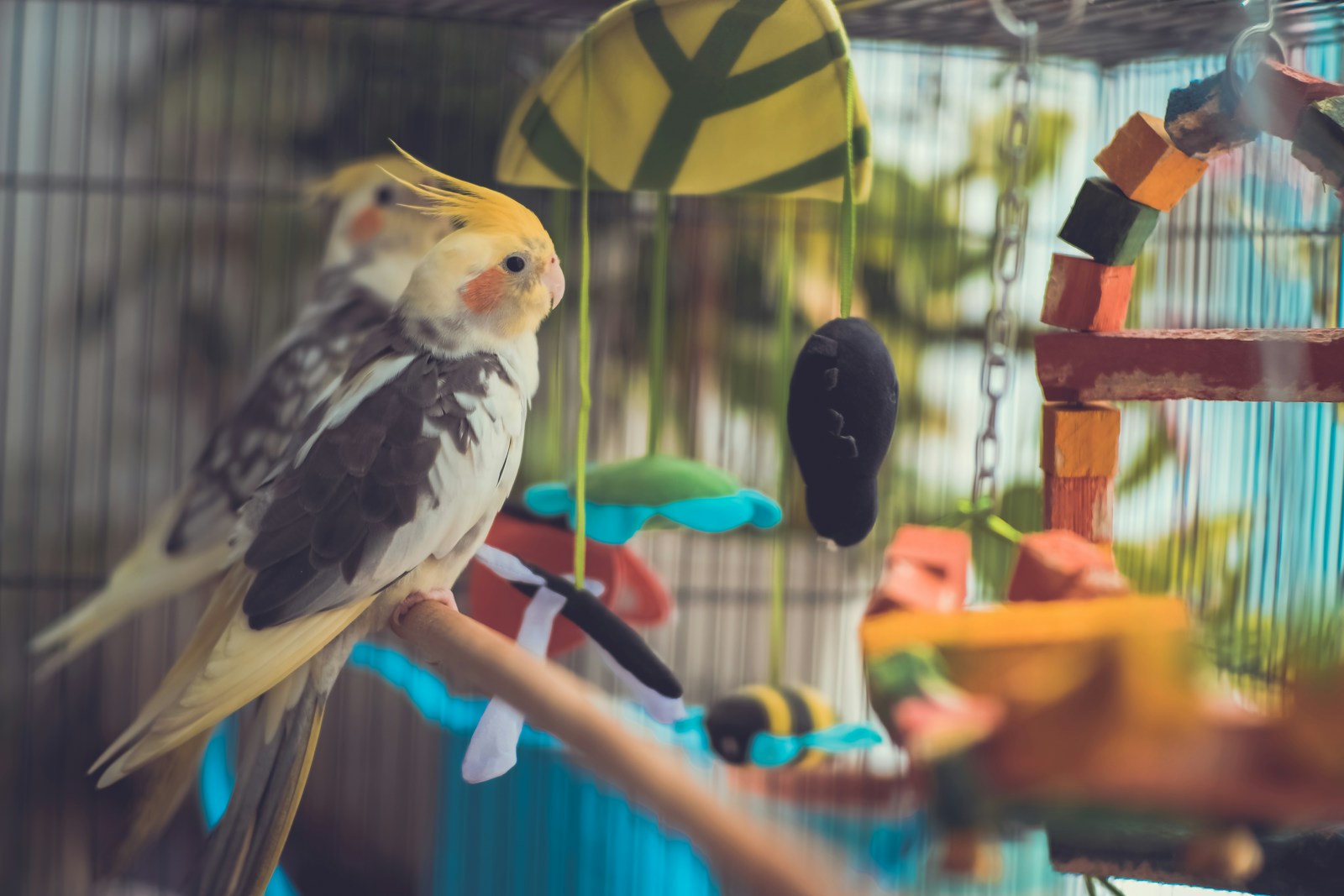
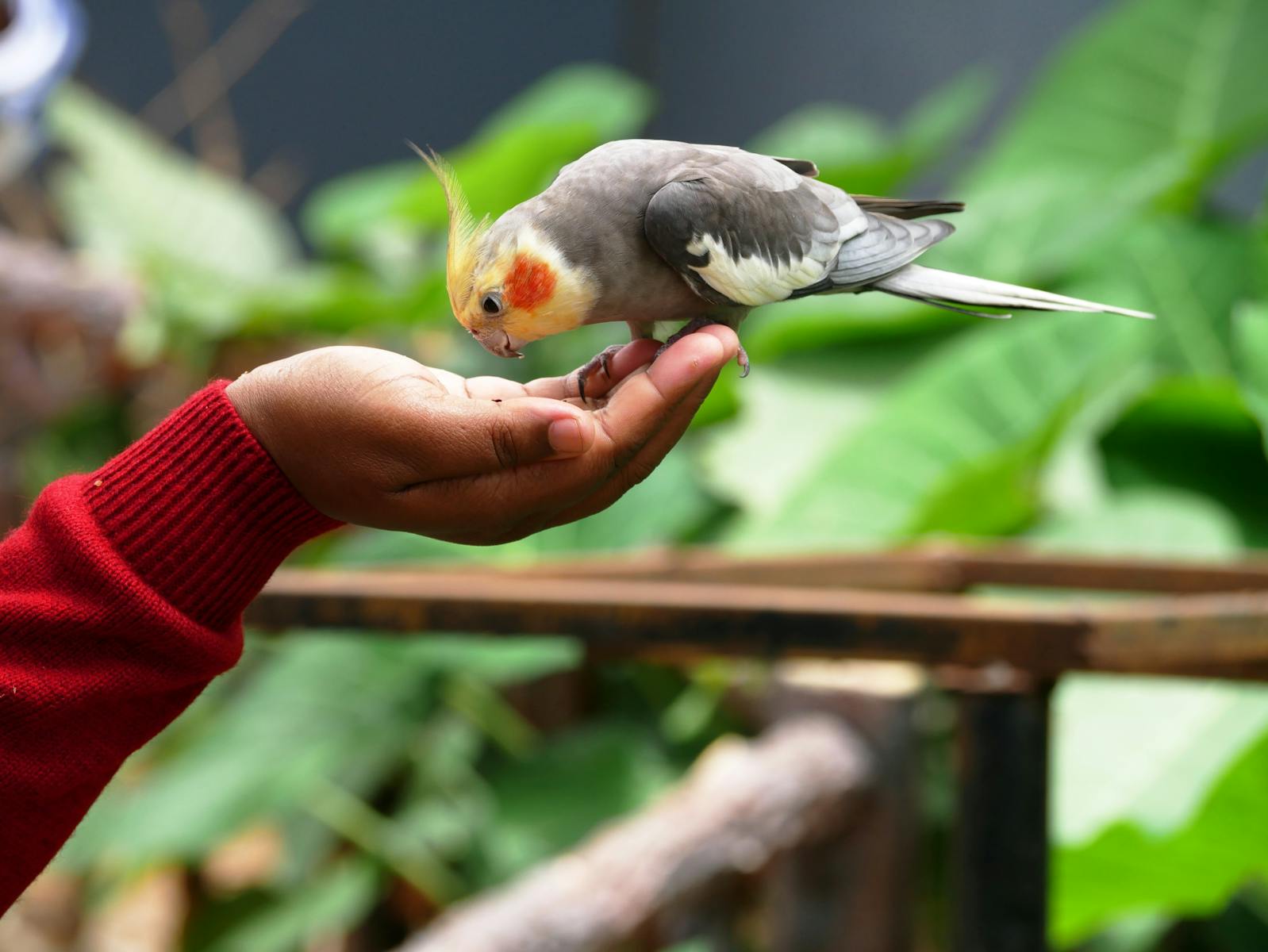
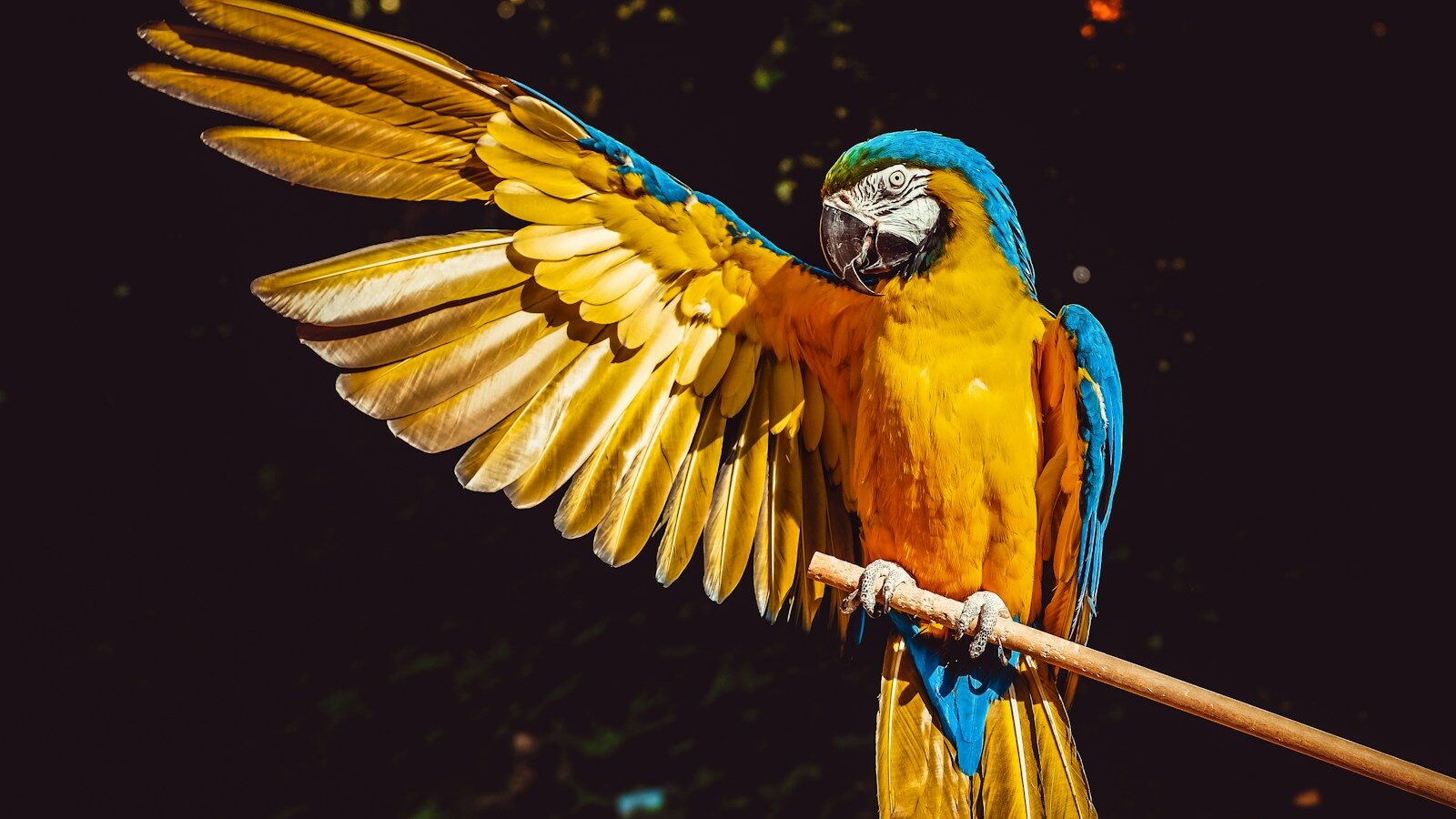

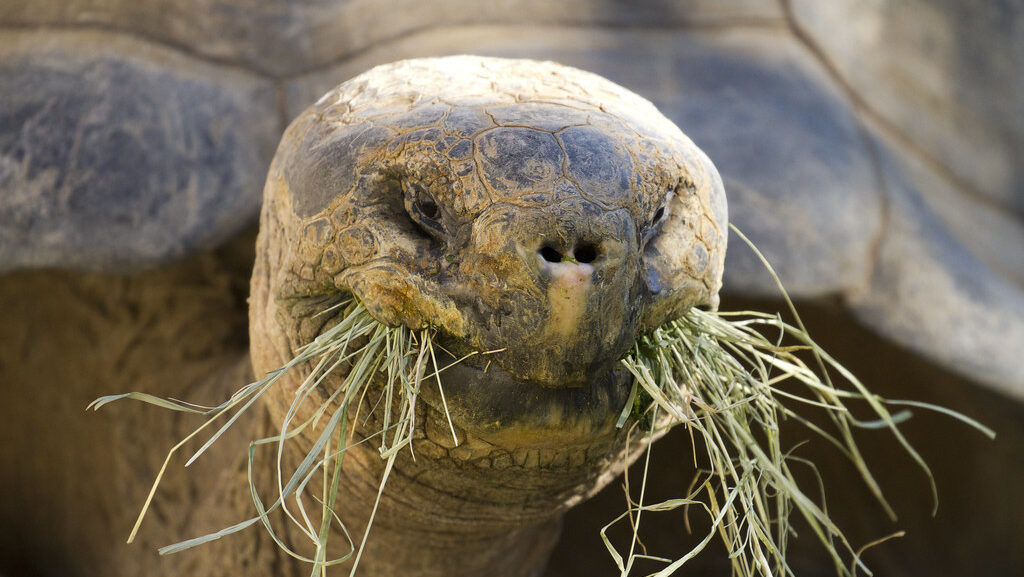
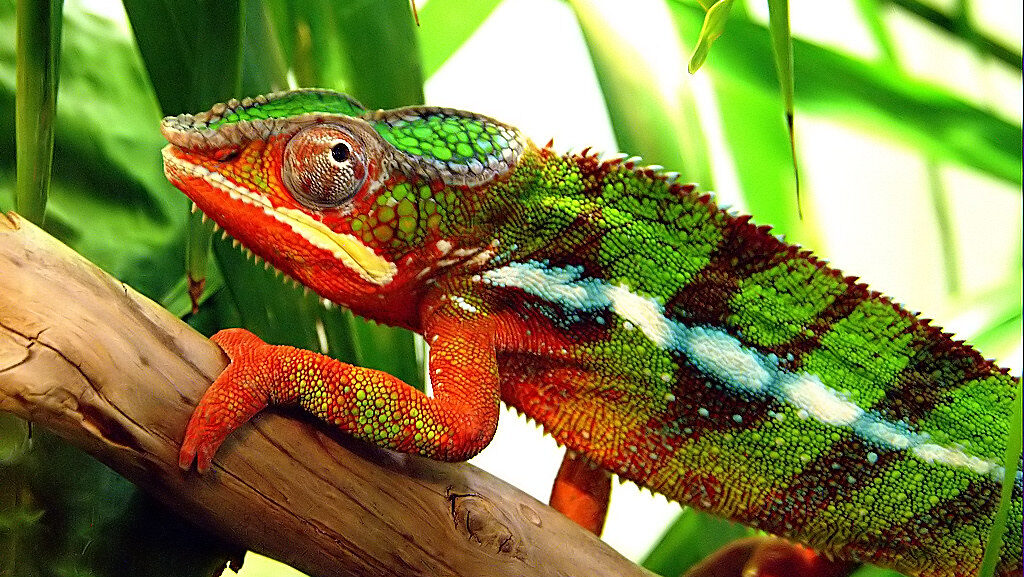
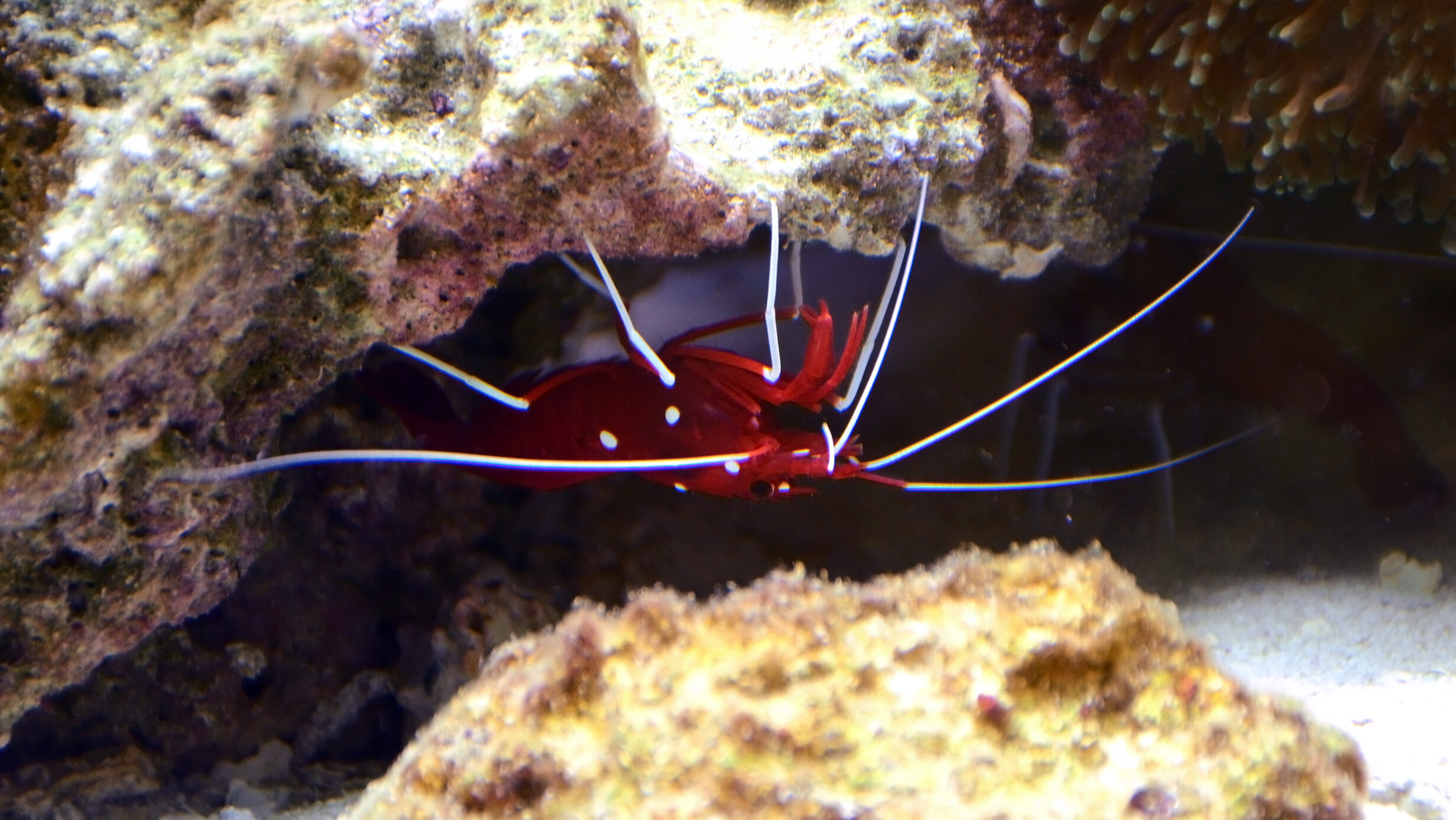
Leave a Reply